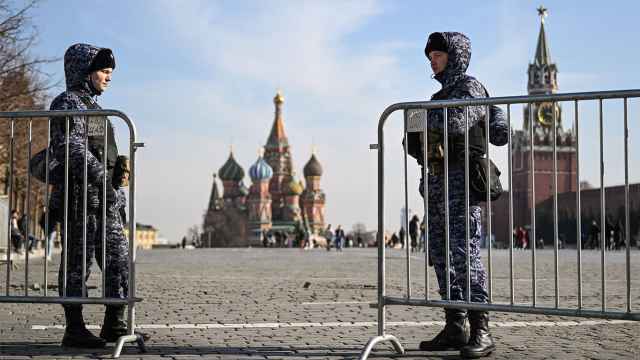Protesters in Russia are not allowed to hide their identity from the police, but can cover some of their face so long as it does not present a
“significant obstacle to identification,” the court said.
The ruling maintained that slogans and drawings drawn on protesters’ faces are also legal, as are scarves in bad weather and bandages worn for medical reasons.
The case follows complaints from activists in the city of Samara, who were
fined for wearing tape over their mouths during a pro-LGBT demonstration on
the “Day of Silence” — an annual event against the harassment of gay people.
Activists claimed that police had ignored the motive behind their demonstration, saying that authorities were in no way hampered in their ability to identify individuals.
The judiciary
urged policemen to exercise caution when classifying violations and
“pay attention to the motives and objectives of such actions,
including the means and methods,” RBC reported.
A Message from The Moscow Times:
Dear readers,
We are facing unprecedented challenges. Russia's Prosecutor General's Office has designated The Moscow Times as an "undesirable" organization, criminalizing our work and putting our staff at risk of prosecution. This follows our earlier unjust labeling as a "foreign agent."
These actions are direct attempts to silence independent journalism in Russia. The authorities claim our work "discredits the decisions of the Russian leadership." We see things differently: we strive to provide accurate, unbiased reporting on Russia.
We, the journalists of The Moscow Times, refuse to be silenced. But to continue our work, we need your help.
Your support, no matter how small, makes a world of difference. If you can, please support us monthly starting from just $2. It's quick to set up, and every contribution makes a significant impact.
By supporting The Moscow Times, you're defending open, independent journalism in the face of repression. Thank you for standing with us.
Remind me later.





